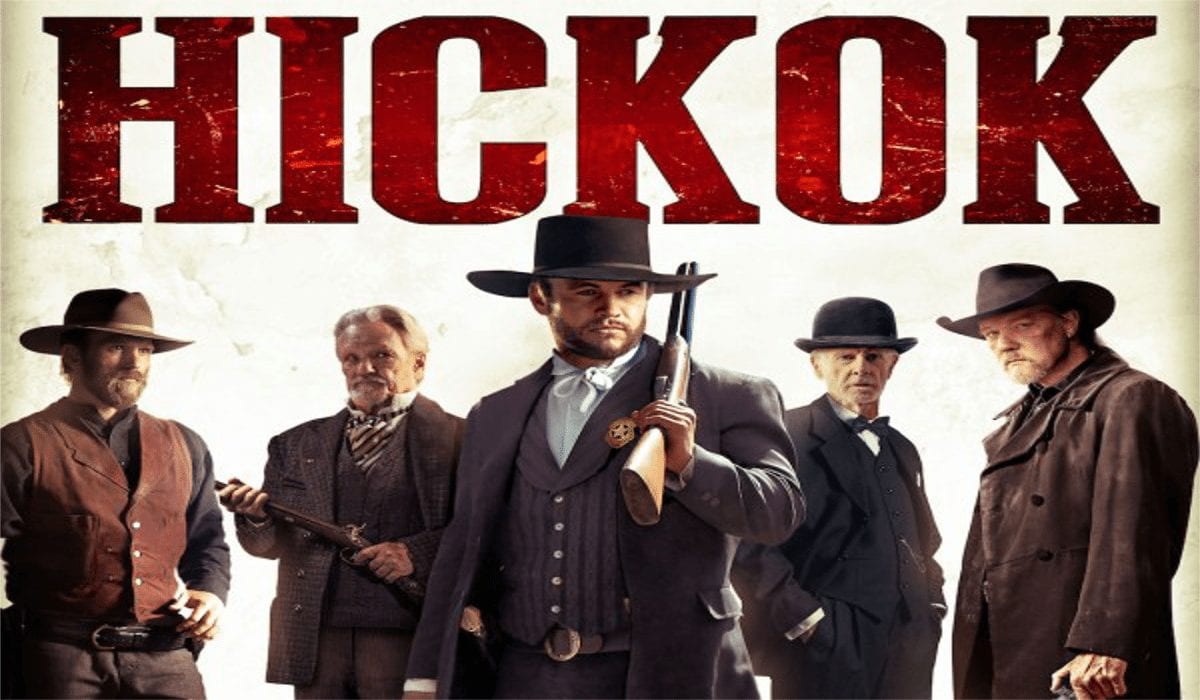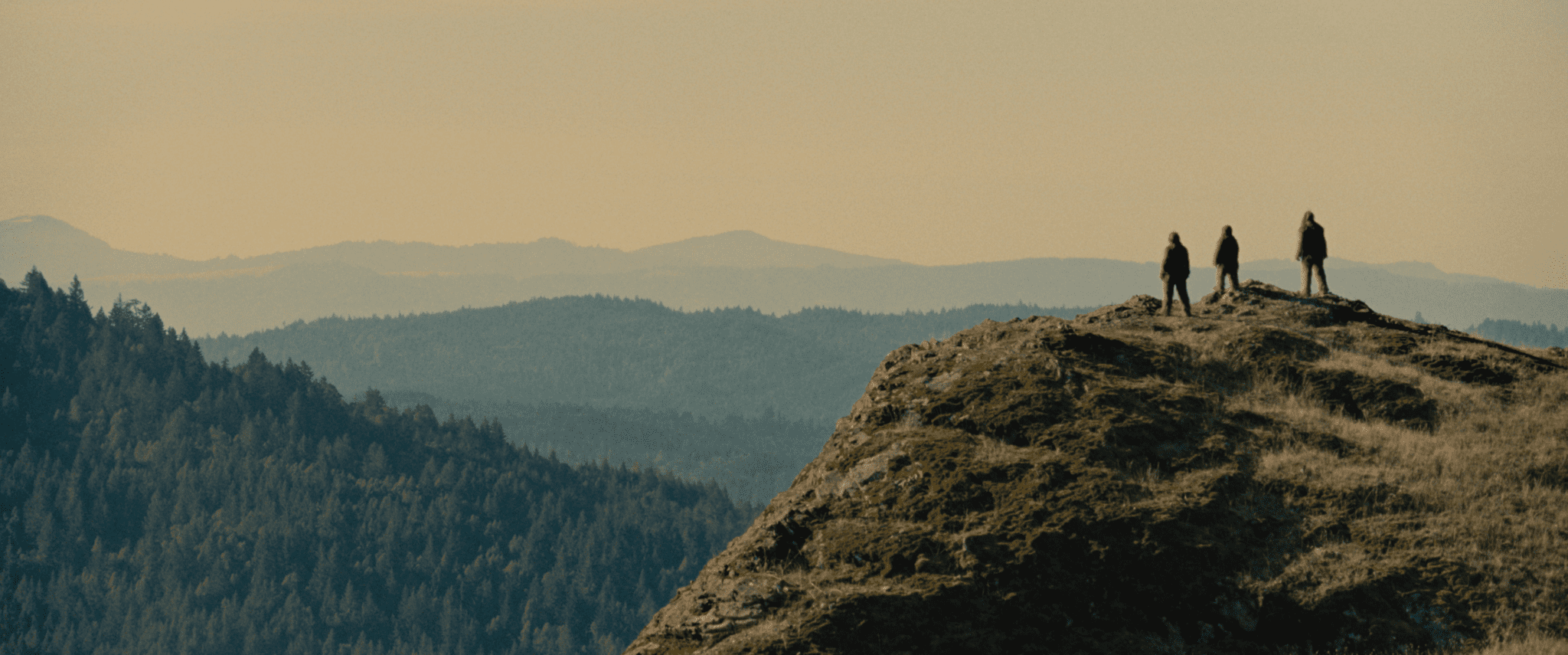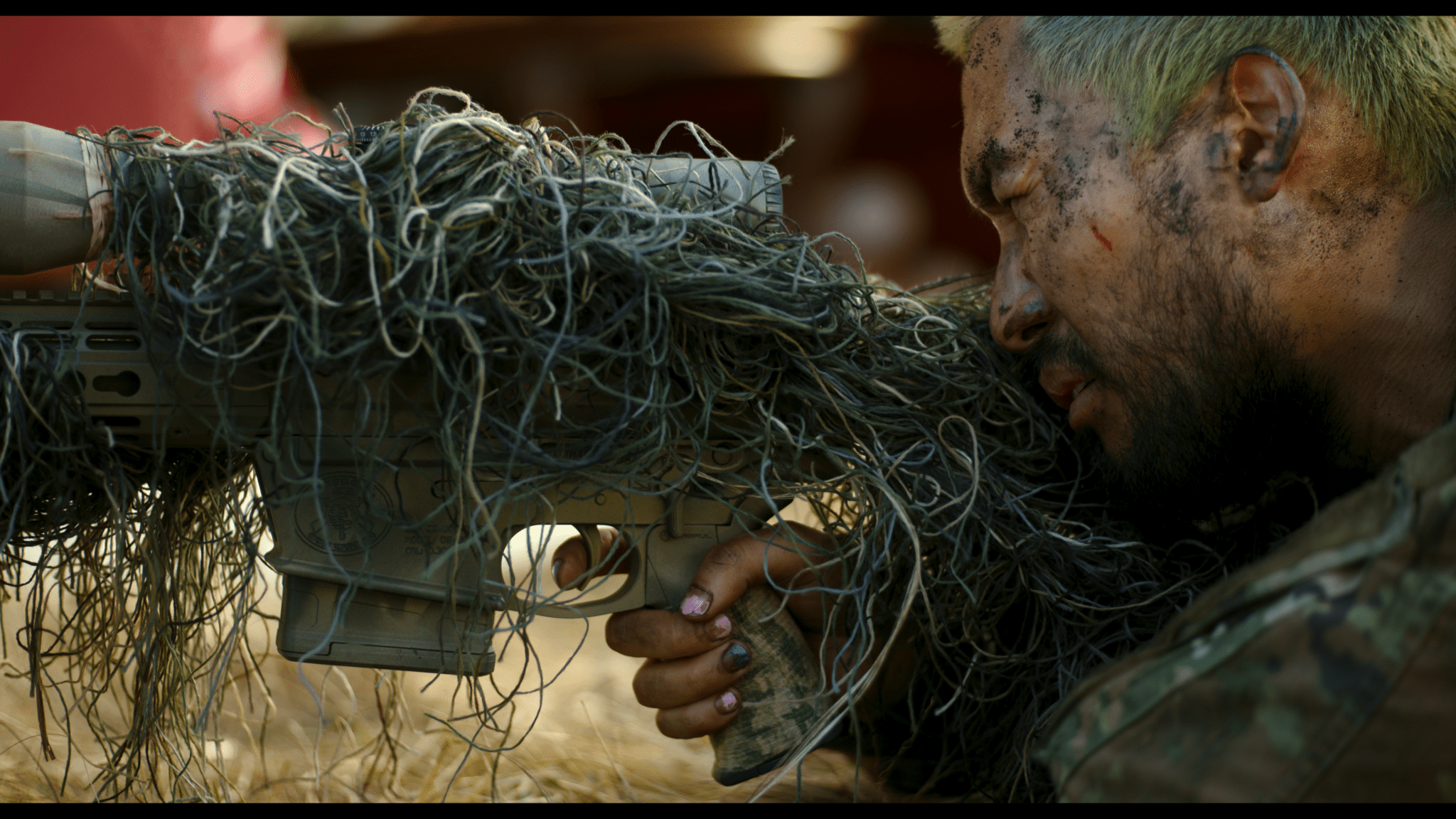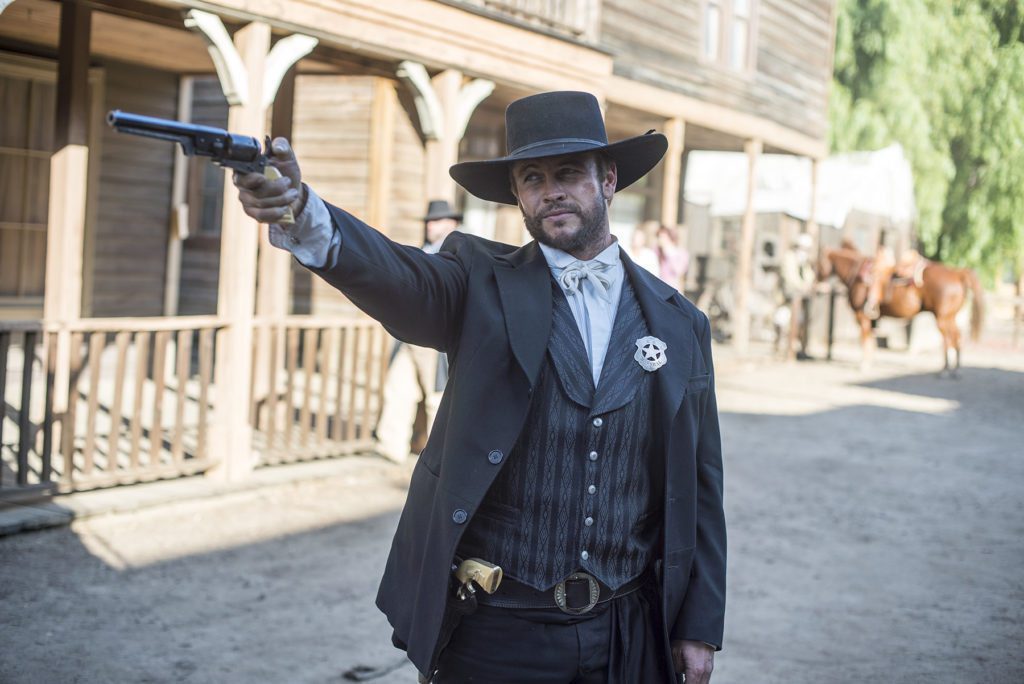 When Bill “Don’t Call Me ‘Wild'” Hickok rides into Abilene, he’s broke and running from the ghosts of the Civil War. Hired to be the marshal, he finds himself in the crosshairs of a saloon owner who has it out for him. But legends die hard.
When Bill “Don’t Call Me ‘Wild'” Hickok rides into Abilene, he’s broke and running from the ghosts of the Civil War. Hired to be the marshal, he finds himself in the crosshairs of a saloon owner who has it out for him. But legends die hard.
Hickok in Timothy Woodward Jr.’s new, old take on the legend is played by Australian Luke Hemsworth (Westworld), the older brother of Chris and Liam. Kris Kristofferson shows up as the mayor hiring Hickok and Bruce Dern as a crazy, drunk town doctor. But Hemsworth’s Hickok is really up against Trace Adkins as Phil Poe, the man who’s ready to hire a hitman to take out the marshal. But when John Wesley Hardin (Kaiwi Lyman-Mersereau) proves to be a different kind of gun than Poe expected, things get interesting.
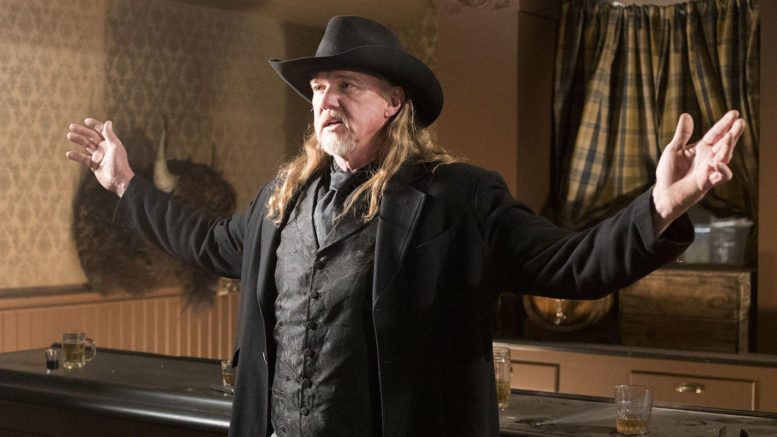 Adding a layer onto the story is Hickok’s old flame and Poe’s current love interest, Mattie (Cameron Richardson), who has a son of an unknown origin… Yes, it’s that kind of Western, the kind we watched forty or fifty years ago with a mysterious stranger, a bunch of bad guys, the woman stuck between two sides, and a firm belief that after some witty repartee, the good guy would win.
Adding a layer onto the story is Hickok’s old flame and Poe’s current love interest, Mattie (Cameron Richardson), who has a son of an unknown origin… Yes, it’s that kind of Western, the kind we watched forty or fifty years ago with a mysterious stranger, a bunch of bad guys, the woman stuck between two sides, and a firm belief that after some witty repartee, the good guy would win.
Michael Lanahan’s script doesn’t seem to be too worried if we harken back to the days of old; under Woodward, the cast keeps it pretty straight with very little by way of violence, language, or nudity to make John Wayne shudder. [We are led to think someone shot down is dead when they’re not. And Hickok is said to be good at “shooting, drinking, and you can guess the last”… lest sex be mentioned!] This is more John Ford or than Sergio Leone or Sam Peckinpah, with a gentle hand on the camera and a stronger evaluation of the ethics Hickok must negotiate to run a town overrun by avarice and greed.
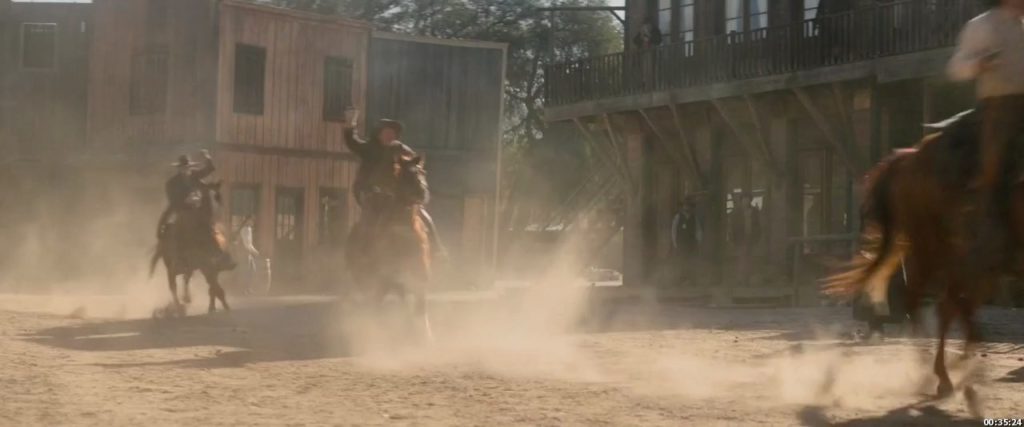 Westerns are no longer a dime a dozen, as Hollywood seems intent on letting go the genre. But there’s still an earthy study of life on a frontier without laws, for people sturdy enough to negotiate their own way in a world without laws. For Hickok, it ultimately becomes a question of whether he will kill only when it’s required, or kill for pleasure or profit. It’s the study of man in the face of many dangers that proves entertaining and provoking in its way.
Westerns are no longer a dime a dozen, as Hollywood seems intent on letting go the genre. But there’s still an earthy study of life on a frontier without laws, for people sturdy enough to negotiate their own way in a world without laws. For Hickok, it ultimately becomes a question of whether he will kill only when it’s required, or kill for pleasure or profit. It’s the study of man in the face of many dangers that proves entertaining and provoking in its way.
For fans of the film, Cinedigm includes the featurette “The Road to Abilene: The Making of Hickok” and three deleted scenes.?

